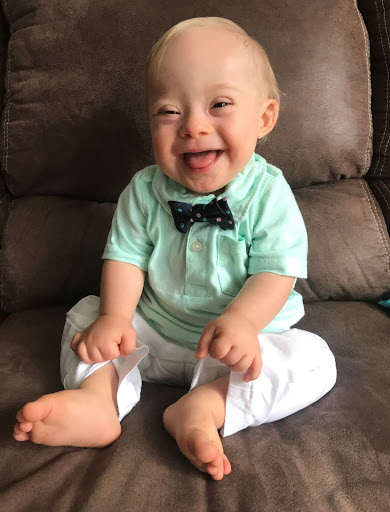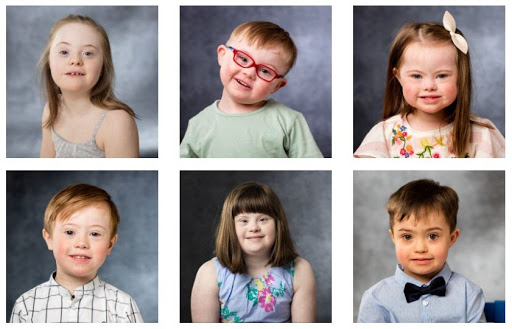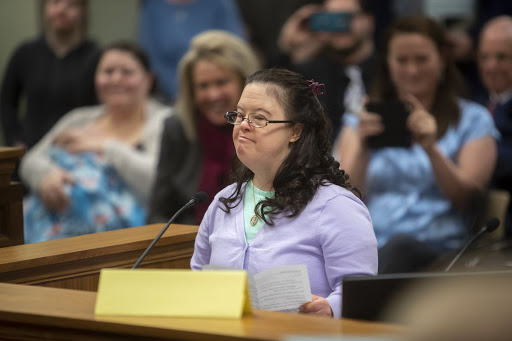
Since January 1, 61 abortion restrictions have passed in 13 different states. This week Governors in Arizona and South Dakota recently signed bills into law that bans abortions solely based on the diagnosis of Downs Syndrome. Children with Down Syndrome are known to possibly have many health issues. This is one of the major reasons why pregnancies with the diagnosis are mostly terminated. However, if you actually look at the quality of life individuals with down syndrome are able to have the abortion rate is alarmingly high. Similar bills are pending in North Carolina and Texas. A federal appeals court said Ohio could begin to enforce a similar 2017 law. It’s a ban that supporters acknowledge will be hard to enforce.
What Will the Abortion Bans do?
The famous court case, which allowed women to abort a baby before 24 weeks, just this week, with a 6-3 conservative majority, is being reconsidered. The 1973 Roe v. Wade’s decision could be overturned soon. The justices agreed to consider reinstating a Mississippi law that seeks to ban abortions after 15 weeks. “It usually takes 30 to 60 days for a law to take effect, the full impact of these laws will be felt later this year”, said Elizabeth Nash, who tracks state policy for Guttmacher. According to Nash, the bans passed this week will likely be held up in court. These bans include limitations on medication abortion, and an Oklahoma law that would only allow OBGYN’s to perform the procedure. Katherine Beck Johnson, a lawyer with the conservative Family Research Council, understands that the Down syndrome abortion laws might be easy to get around. “But even if it’s hard to enforce, it’s worth being passed,” she said, “It’s important for a state to show they’re not supporting eugenics; they want to remove the stigma of people who have Down syndrome.”

Last month’s decision by a 6th Circuit court, which includes six justices nominated by Trump, reversed two earlier decisions that had blocked enforcement of the 2017 Ohio law. Doctors could face a felony charge, be stripped of their medical license and be held liable for legal damages if they are aware of a Down syndrome diagnosis when performing an abortion. The majority opinion said the Ohio law is aimed at protecting the Down syndrome community from “the stigma it suffers from the practice of Down-syndrome-selective abortions.” In the past courts routinely blocked state laws seeking to ban abortion based on a diagnosis of Down syndrome or other anomalies. Trump’s judicial appointments as well as the Supreme Court has altered the legal atmosphere. However, not everyone believes the bans should be in place.
People against the abortion bans
“If you tell a woman, ’We’re going to force you to have a baby with Down syndrome. she’ll think, ‘Oh my God, is it really that bad that you’re going to force me?’” Said Holly Christensen, a teacher and newspaper columnist in Akron, Ohio. Holly’s 8-year-old daughter, Lyra, has Down syndrome. Holly believes that the push for bans, in hopes of getting a case before the Supreme Court, has damaged the effort to get information about Down syndrome. Holly believes this could hinder more families from being willing to raise children with the condition. She would like to see increased funding for education and services for children with disabilities as well as resources for new families who have children with down syndrome and other anomalies. Erika Christensen, and her husband, Garin Marschall, decided in May 2016 to terminate a pregnancy after learning, during the third trimester, that the baby would be unable to breathe on their own. The couple lived in New York, where abortions are banned after 24 weeks. They traveled to Colorado and Christensen had an abortion at 32 weeks. Christensen and Marschall now oppose bills banning abortion for reasons related to genetic anomalies. The couple says lawmakers oversimplify the difficult decisions women and families must make. “All decisions in these cases are necessarily complicated,” said Christensen. The couple noted that the 6th Circuit decision upholding the law in Ohio implies that patients seeking abortions in similar cases could lie to their doctors about their reasons. “That is a really dangerous place to go with regard to the law,” Marschall said.

According to the National Down Syndrome Society, one in every 700 babies in the United States is born with the condition. This adds up to roughly 6,000 babies annually born with the chromosomal irregularity. A 2012 study by medical experts estimated the abortion rate of unborn babies with the diagnosis was 67%. In the past, many children with Down syndrome were institutionalized. These days, they frequently acquire job skills and some degree of self-sufficiency. Their life expectancy is more than 60 years, triple the expectation just a few decades ago. This is why it is so important to preserve the life of babies who may be born with the condition. If they are capable of living life successfully why should they not have that chance? Arizona’s new Down syndrome measure is set to take effect later this year. Similar to the Ohio law, it calls for felony charges against doctors who perform an abortion based on a diagnosis of Down syndrome or other genetic abnormalities. What do you think of these new bans? Do you believe parents should have the right to choose whether or not a baby gets a chance at life?
Written by: Erinn Malloy
